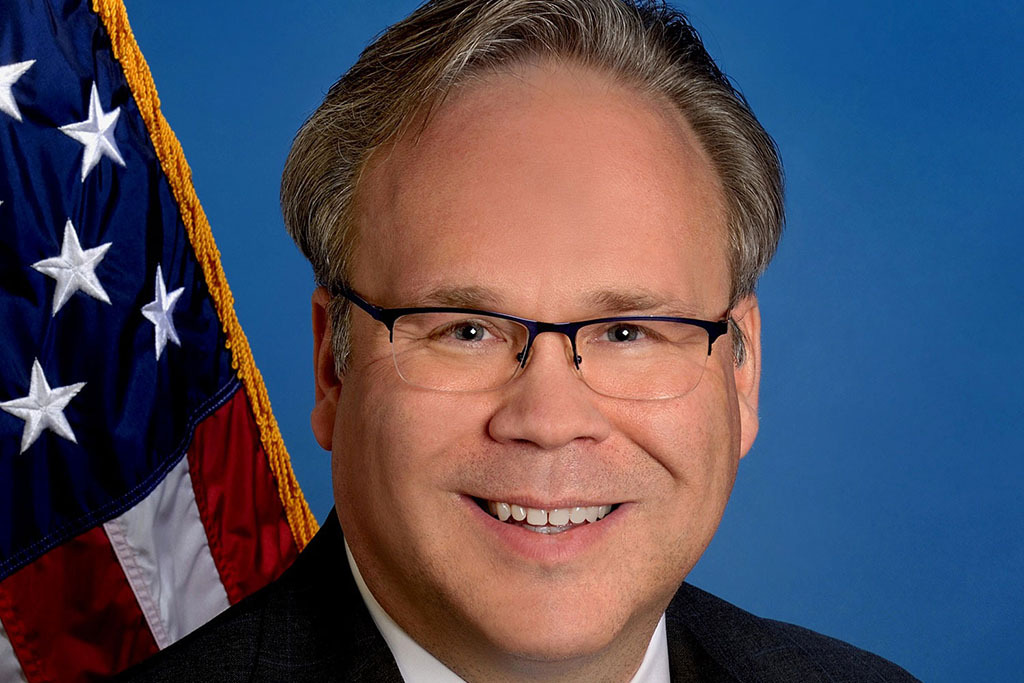January 17, 2023

The United States differs from most countries in having a financial system that includes thousands of small depository institutions — nearly 10,000 in all. More than half of these are credit unions. While larger banks dominate the financial market in terms of volume of activity, small banks and credit unions play a vital role in our overall economy, and a crucial role in meeting the needs of their local and membership communities.
America’s credit unions are regulated and insured by the National Credit Union Administration, which announced this month that it is hiring Charles Vice to lead its new office of Financial Technology and Access. I’m delighted to say that today’s guest is the NCUA’s Chairman, Todd Harper.
My conversation with the Chairman covers a lot of ground. We talk about today’s economic outlook, including the prospects for inflation and recession. We talk about the state of the U.S. credit union sector. We talk about the role of credit unions in addressing consumer financial protection and the regulatory issues relating to these challenges.
Mainly, though, we talk about the pressures and opportunities facing credit unions in the realm of technology innovation. We recorded this program in late December, in the lead up to the public announcement about Charles Vice leading the new innovation office. Credit unions are confronting increasingly acute competition on the technology front. The challenge is coming from both high-tech large banks and from young fintech firms. And it affects both operational efficiency, in terms of expense management, and the ability to attract and retain today’s increasingly high-tech consumer, who expects a great user experience in a wide array of channels.
I am especially excited about this discussion because we at AIR have launched a project on the future of Minority Depository Institutions (MDIs), which include both credit unions and banks. We are partnering with the National Bankers Community Foundation and Inclusive to help develop a technology modernization roadmap for these important financial providers, with plans to share the learnings with other MDIs and other small institutions, to help them stay competitive in today’s financial market.
Todd Harper is unusual among agency heads in the fact that he previously served on the NCUA’s own staff. He is, in fact, the first NCUA chairman to be selected from the agency’s own ranks. I know you will be fascinated to hear his insights on what’s ahead for the credit union sector, and its regulator.
Todd M. Harper has served on the NCUA Board since 2019 and was designated by President Joseph R. Biden, Jr. to be the agency’s twelfth Chairman on January 20, 2021.
As NCUA Board Chairman, Mr. Harper serves as a voting member of the Financial Stability Oversight Council and represents the NCUA on the Federal Financial Institutions Examination Council and the Financial and Banking Information Infrastructure Committee.
Prior to joining the NCUA Board, Mr. Harper served as director of the agency’s Office of Public and Congressional Affairs and chief policy advisor to former Chairmen Debbie Matz and Rick Metsger. He is the first member of the NCUA’s staff to become an NCUA Board Member and Chairman.
Mr. Harper previously worked for the U.S. House of Representatives as staff director for the Subcommittee on Capital Markets, Insurance, and Government-Sponsored Enterprises and as legislative director and senior legislative assistant to former Rep. Paul Kanjorski (D-Pennsylvania). In these roles, he contributed to every major financial services law, from the enactment of the Gramm-Leach-Bliley Financial Services Modernization Act in 1999 through the passage of the Dodd-Frank Wall Street Reform and Consumer Protection Act in 2010.
During the Great Recession, Mr. Harper coordinated the first congressional hearing to explore the creation of a Temporary Corporate Credit Union Stabilization Fund. He also spearheaded staff efforts in the U.S. House to secure enactment of a law to lower the costs of managing both the Corporate Stabilization Fund and the National Credit Union Share Insurance Fund.
Mr. Harper led staff negotiations over several sections of the Dodd-Frank Act, including the Kanjorski amendment to empower regulators to preemptively rein in and break up “too-big-to-fail” institutions and proposals to enhance the powers of the Securities and Exchange Commission. He also developed the legislative framework for the bill that created the Federal Insurance Office to monitor domestic and international insurance issues.
Mr. Harper holds an undergraduate degree in business analysis from Indiana University’s Kelley School of Business and a graduate degree in public policy from Harvard University’s Kennedy School of Government.
The holidays and my intense traveling late last year have left us with a bit of a podcast backlog, and we’re going to try to catch back up by giving you a flurry of shows this month, so watch for them!
Building on today’s conversation with Chairman Harper, we have a fascinating discussion coming up with another NCUA board member, Kyle Hauptman. Watch for our show with Tara Rice from the Bank for International Settlements. We’ll also be posting a show that is one of my favorites we’ve ever recorded, with two visionary women – Cleve Mesidor and Delicia Hand. And watch for a special episode where I’ll be sharing my thoughts on what’s ahead for us all this year.
Also, we’re coming up on both AIR’s fourth anniversary and Barefoot Innovation’s 200th episode, so we’re going to have some special shows to mark those special occasions!
AIR is growing. This week, we will be announcing the addition of a key new executive who we are all very excited about, and we are hiring for several key positions. Please visit our careers page to learn more and apply!
Don’t forget to follow AIR on LinkedIn and Twitter. Be sure to leave us a five-star rating on your favorite podcast platform. And please follow me personally on Twitter @JoAnnBarefoot.
Stay informed by joining our mailing list
